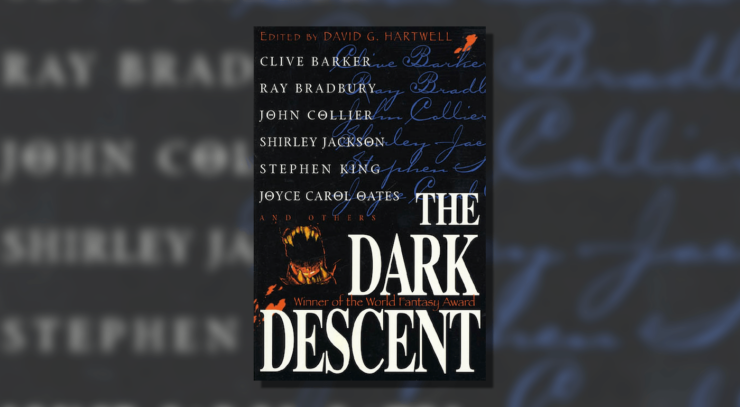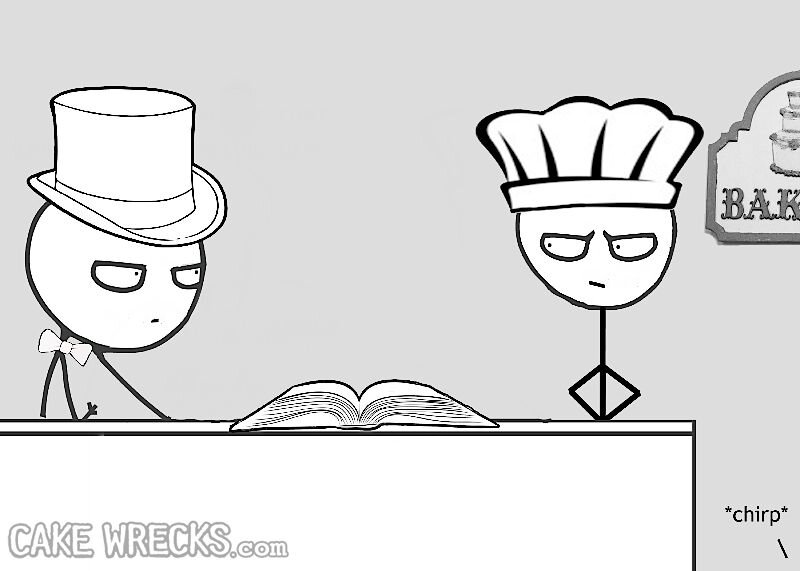Debarkle Revisited: Hypothetical – Sad without Rabid
Apr. 22nd, 2025 08:23 pmIn mid April 2015, the Sad Puppies were facing significant vocal pushback after sweeping the Hugo Award nominations. Notable blog post from people such as Naomi Kritzer and El Sandifer, highlighted the role of Vox Day and his Rabid Puppy campaign in engineering the shocking result. However, Day took a back seat and most of the news coverage and PR for the Puppies fell onto Brad Torgersen and Larry Correia. This undoubtedly led to layers of confusion and at times will full misunderstandings.
But what if there hadn’t been a Rabid Puppies campaign? Vox Day had been deeply embroiled in the controversies within the Science Fiction & Fantasy Writers of America (SFWA) and several years earlier he had an active interest in the Nebula Awards. However, he hadn’t shown much interest in the WSFS or the Hugo Awards. In 2014, Larry Correia had included Day as part of the Sad Puppies 2 slate, causing more controversy and hence more attention. Day claims that accusations that Day had gamed the 2014 Hugo nomination process as a major contributing factor to setting up Rabid Puppies.
So let us imagine that Corriea had NOT included Day in the 2014 Sad Puppies 2 slate. Day was busy with the more high profile culture war outbreak of GamerGate in 2014 and 2015, so it is not implausible that he would not have actively engaged with the Hugo Awards in 2015. For arguments sake, let us assume he didn’t or had a bad cold in early 2015 and stayed in bed. How would 2015 have turned out without the Rabid Puppies?
We don’t have a simple way of disentangling Rabid Puppy votes from Sad Puppy votes. There are definitely relevant figures in the Debarkle who sit comfortably in both camps, John C. Wright and Tom Kratman in particular. The two slates had a lot of overlap but also some relevant differences.
In Best Novel the slates differed by two novels neither of which made the final ballot. For the Sads this was Trial by Fire by Charles E. Gannon, a Baen author who often made the Nebula Award short list. For the Rabids the choice was The Chaplain’s War by Brad Torgersen. I assume this was a favour by Vox Day so that Brad would not been seen nominating himself in the slate he was running. Both the Sad & Rabid slate included he Dark Between the Stars by Kevin J. Anderson, which was a dreadfully boring book and which came fifth overall in the nominations with 263 votes. Trial by Fire didn’t make the cute with 199 votes and The Chaplain’s War fell even further short with 196 votes. So at most about 64 votes in play as the difference between the two slates.
For the sake of simplicity, I’ll knock 50 votes off all Puppy nominees as a rough way of imagining a Rabid-free set of nominees.
| Votes | Title | New Rank |
| 337 | Skin Game Jim Butcher | 1 |
| 322 | Monster Hunter Nemesis Larry Correia | 2 |
| 279 | Ancillary Sword Ann Leckie | 3 |
| 256 | The Goblin Emperor Katherine Addison | 4 |
| 220 | Lines of Departure Marko Kloos | 5 |
| 213 | The Dark Between the Stars Kevin J. Anderson | 6 |
| 210 | The Three Body Problem Liu Cixin | 7 |
| 168 | Lock In John Scalz | 8 |
| 160 | City of Stairs Robert Jackson Bennet | 9 |
| 149 | Trial By Fire Charles E. Gannon | 10 |
| 146 | The Chaplain’s War Brad Torgersen | 11 |
| 141 | The Martian Andy Wei | 12 |
The main difference is that The Goblin Emperor is a finalist on the first cut. It did end up being a finalist anyway but only because Larry Correia and Marko Kloos withdrew. This is where the hypothetical becomes more complex. Without the Rabid Puppies other categories would have had more non-slate finalists and without the Rabid Puppies there would have been less attention paid to the far right politics of the Puppies. Given that would Correia or Kloos have withdrawn?
I suspect Correia already planned to withdraw. He was on the slate to bring his voters along and the man knew he was going to be No Awarded on a matter of principle. To a large extent Jim Butcher was included in the Sad slate as a kind of Correia stand in: somebody with a large following but without Correia’s baggage. Kloos would have felt less pressure to withdraw if Day’s toxicity was absent. If both withdrew, then the Best Novel ballot ends up being the same. If only one of them withdrew in this Rabid free scenarion then the eventual winning novel The Three Body Problem wouldn’t have been on the ballot.
With Best Novella the situation is simpler. The Sad slate had only three nominees and even if we assume a lower vote for them I think it is likely that all three would have made it. That does mean the non-slate works The Slow Regard of Silent Things by Patrick Rothfuss and The Regular by Ken Liu would have been on the ballot. This has two effects in our hypothetical: the category would not have gone to No Award but also the overall heat caused by the Sad Puppies would have been less because it would have been one less category that only had Puppy nominees.
Best Novelette only had four Sad nominess but the fifth Rabid nominee “Yes, Virginia, There is a Santa Claus” by John C. Wright was deemed ineligible. All the Sad nominees had large votes and even assuming a big reduction without Rabid votes, they would have made it. That means the Novelette ballot would have been likely the same with Thomas Olde Heuvelt’s “The Day the World Turned Upside Down” coming in as the non-slate finalist.
Short Story was a bit of a mess. The Sad slate had five nominees as did the Rabid slate but the Rabid slate had two different works from the Sad slate. This was further complicated by one of the Sad finalist being ineligible (“Tuesdays with Molakesh the Destroyer”) and Annie Bellet disavowing the Sad Puppies and withdrawing. In the real 2015, the split slate meant that even with the loss of two finalists, the category was still a Puppy-sweep. The Rabid-only Turncoat by Steve Rzasa and The Parliament of Beasts and Birds by John C. Wright [click that link for a treat] got sizeable votes (162 and 151) which suggest better overall slate discipline by the Rabids. Without Rabid votes it is possible that none of the Sad finalists would have made it except for Annie Bellet, who may have had enough organic votes to have made it. I suspect Bellet would have withdrawn anyway but it is plausible that she would have been in a category with no other Puppy finalists in which case (and without the liability of Vox Day), maybe she wouldn’t have. Either way, assuming the Sad Puppy vote held up, Jackalope Wives by Ursula Vernon would have been a finalist and would have won in the final vote.
I’m not going to go through the rest of the categories one by one. What I wanted to demonstrate is that without the Rabid Puppies, of the main story categories it is likely only Best Novelette would have come close to a Puppy sweep. I assume we would have seen similar impacts down the ballot. Some categories might still have had Puppy sweeps (Best Related Work maybe) but without the Rabid Puppy votes the chance of non-slated works getting on the final ballot would have increased.
The net effect would have been an overall reduction in the rhetorical temperature. Without Vox Day’s involvement, the public political positions of the Puppies would have looked less extreme and their contention that their campaign was about fairness, variety and aesthetics would have been more persuasive to more middle-of-the-road Hugo voters. I think those of us on the left would have found it harder to encourage others to participate. Having said that, I assume Correia’s argumentative online presence and Torgersen’s capacity to shoot himself rhetorically in his rhetorical foot would still have riled up a lot of opposition.
With, fewer categories swept by the Puppies (possibly none), the impetus for voting reform would have been less. Possibly the measures enacted in the 2015 business meeting wouldn’t have happened, we can’t know for sure.
However, while it wasn’t obvious at the time, in 2015 GamerGate was actually running out of steam. While it had a bigger public profile than the Puppies, the disconnect between the supposed aims (“ethics in games journalism”) and the actual praxis (online harassment and whining) was unsustainable. The alt-right was nonetheless gaining traction culturally and figures like Vox Day and Milo Yiannopoulos were looking for a new cause.
In this hypothetical, I suspect the 2015 Hugo Awards sans the Rabids, would have been fractious but less heated than what we actually saw. However, it would have been a less decisive defeat for the Sad Puppies and possibly the rule changes would not have passed. With 2016 being a banner year for the Alt-Right and with the added political heat of Donald Trump’s presidential campaign, I suspect my hypothetical simply delays the arrival of the Rabids by one year and 2016 would have been the big battle for the Hugo Awards.
Postcards from America (4.22.25)
Apr. 22nd, 2025 06:30 pmHoles: TV Adaption Casts Greg Kinnear, Shay Rudolph, Aidy Bryant, & Others
Apr. 22nd, 2025 07:17 pmHoles: TV Adaption Casts Greg Kinnear, Shay Rudolph, Aidy Bryant, & Others
Published on April 22, 2025
Share
A Wheel of Time Video Game Is in the Works
Apr. 22nd, 2025 07:07 pmA Wheel of Time Video Game Is in the Works
Published on April 22, 2025
Credit: Prime Video
Share
Read an Excerpt From Isabella Nagg and the Pot of Basil by Oliver Darkshire
Apr. 22nd, 2025 07:00 pmRead an Excerpt From Isabella Nagg and the Pot of Basil by Oliver Darkshire
Published on April 22, 2025
Share
Doctor Who Takes Metafiction to New Heights in “Lux”
Apr. 22nd, 2025 05:30 pmDoctor Who Takes Metafiction to New Heights in “Lux”
Published on April 22, 2025
Image: James Pardon/BBC/Bad Wolf
Share
Babylon 5 Rewatch: “Dust to Dust”
Apr. 22nd, 2025 05:00 pmBabylon 5 Rewatch: “Dust to Dust”
Published on April 22, 2025
Credit: Warner Bros. Television
Share
Of Cats, Conspiracies, and Carcosa: “The Repairer of Reputations” by Robert W. Chambers
Apr. 22nd, 2025 05:00 pmOf Cats, Conspiracies, and Carcosa: “The Repairer of Reputations” by Robert W. Chambers
Published on April 22, 2025

Welcome back to Dissecting The Dark Descent, where we lovingly delve into the guts of David Hartwell’s seminal 1987 anthology story by story, and in the process, explore the underpinnings of a genre we all love. For an in-depth introduction, here’s the intro post.
We’ve all encountered the work of Robert W. Chambers before.
Even if you haven’t read his bizarre romantic/weird fiction mosaic novel The King in Yellow, the later connections made between Chambers’ work and the Lovecraftian figure of Hastur, the repeated mention of the doomed city of Carcosa in cosmic horror, and the way references to his work pop up everywhere from True Detective to The Witcher mean that in some way, you’ve experienced his work. The most ambitious of The King in Yellow’s tales about the mysterious, madness-inducing play that gives the book its title is “The Repairer of Reputations,” the story of a megalomaniac, an insidious blackmailer, and their plans to take over a dystopian fascist United States of America. In its exploration of gothic archetypes, it lays bare the petty delusions of its power-hungry villains and questions the incorruptible pureness of its heroes; in doing Chambers shines a light on the complex relationship such stories have with power and privilege (a relationship usually taken for granted, or simply ignored).
Hildred Castaigne is a recently released mental patient, a man whose tumble from horseback left him with an “excited temperament” and a new purpose: to become king of the United States of America and usurp the fascist government. Aiding him in this task is a blackmailer and “repairer of reputations,” the disfigured Mr. Wilde, and Wilde’s army of “clients” he forces to do his bidding in various ways. From Wilde’s tiny room, they direct their conspirators in various schemes, all in service of their own power and a mysterious play titled The King in Yellow. Threatening to derail Castaigne’s plans are his love for the innocent armorer’s daughter Constance Hawberk and the fact that his dashing cousin Louis, a cavalry officer in the United States Army, has captured Constance’s heart. As the shadowy conspiracy reaches its fever pitch, Castaigne’s petty romantic rivalry threatens to derail his plans and lose him the throne.
At the start of the story, Castaigne’s got all the qualities of a Gothic antihero. He’s well-spoken and well-read, urbane, and his villainous qualities are partly the cause of a major head injury and the influence of a corrupting artifact, the eldritch play The King in Yellow. It’s also clear he’s a despicable fascist from the appreciative way he talks about the gleaming aesthetics of Chambers’ dystopian setting, highlighting in his opening narration such “flourishes” as government-sponsored suicide booths with marble columns and the expulsion of anyone who isn’t a white European. It’s the first sign of a certain wrongness in everything, that perhaps instead of the cultured, Byronic villains of gothic text there might be something far worse going on with Castaigne, and that he might not have the tragic or sympathetic qualities his narrative voice would suggest. Like last week’s Clara Militch, Castaigne has deluded himself into believing that he’s some kind of dark antihero where in reality he’s a megalomaniac who fell off his horse a little too hard.
He’s also petty and jealous, quietly terrorizing Constance’s father with knowledge gained from Mr. Wilde’s job as an information broker and bitterly fantasizing about misfortune befalling his more functional cousin/rival. His own machinations are heavily dependent on Wilde feeding his delusional megalomania, as he remains eagerly in thrall to his disfigured comrade—the only two places he ever seems to go are his own rooms and Hawberk’s building, where he can creepily make advances on Constance while also visiting Wilde on the third floor. Whenever Castaigne’s delusions are challenged, he reacts violently, expanding the scope of his plan, which eventually extends to murdering his psychiatrist, Mr. Hawberk, and Constance for presumably mocking him. The further the story gets, the more his delusions are laid bare, much like his cherished Yellow Crown being revealed as a brass-and-tinsel costume piece.
This pettiness and bottomless desire for power also extends to Wilde, who is seen in most scenes abusing his cat and gleefully namedropping the number of powerful people he controls from the tiny upstairs room he never leaves. Wilde is a grotesque, a disfigured man who wields soft power openly in this fascist state (though in a grim moment of humor it’s implied that the cat he mistreats might be responsible for his disfigurement rather than any tragic accident, as it brutally attacks him whenever it sees an opening). He’s a study in contrasts—a man who appears to wield immense power and influence, though confined to an office, and the only demonstration we see of his power is when he reads names and figures from books, in one scene hypnotizing one of his more unstable lackeys through merely reading a scroll about the secret lineage of the United States (which in Chambers’ bizarre future is apparently a monarchy, or used to be).
It’s this hypnosis scene that shows Wilde as he is. Far from the mysterious power broker pulling all the strings from his tiny room, he’s a self-aggrandizing manipulator, preying upon the paranoid and mentally unwell. In the end, he doesn’t even live to see his plans collapse around him, as the realistic outcomes of abusing a feral animal to the point of homicidal rage and relying on psychologically disturbed people to carry out his conspiratorial aims mean his cat appears to have mauled him to death in his sleep and his hired killer fails to kill anyone before diving headlong into a suicide booth, shrieking madly. The story ends (relatively) happily, with the bewildered Louis set to marry Constance and Castaigne dying a day later in a psychiatric facility.
Even in this apparently happy ending, there’s still a wrongness to everything. While the heroes have won, Louis remains a military officer serving a dystopian regime who did nothing to stop the villains whatsoever. He’s the very image of a dashing hero, but both his passivity in the plot and the undeniable fact that he’s a fascist officer create an unnerving dissonance. Louis might be cast in the heroic role, but his passivity and active support of dystopian powers mean he’s no hero. If anything, he’s rewarded merely for not being the worst person in the story and thus not causing his own downfall. Despite appearances, he’s just as wrong as everyone else in the story; he just seems nicer.
This is the genius of “The Repairer of Reputations.” By setting the entire story in a fascist dystopian version of the United States, Chambers puts the reader on their guard with an all-encompassing wrongness, forcing them to question exactly how much else is wrong even as he plays many of the usual gothic tropes straight. Within this framework, he’s able to show his villains as pathetic and despicable victims of their own delusions of power, his hero as a passive figure who vigorously supports the power and privilege around him, and ultimately the grand conflict of conspiracy and ambition as a petty struggle that leaves the oppressive dystopian regime with barely a scratch. By blending elements of science fiction and gothic horror, Chambers crafts a twisted gothic satire that remains heightened and fantastic even as it highlights the grim pettiness of its protagonist’s grand ambitions.
Now to turn it over to you. Do you think the dystopian futuristic setting was an inspired choice, or just an odd stylistic touch? How much of the story is Castaigne’s delusions? Which is your favorite of Chambers’ King in Yellow stories?
And please join us in two weeks for a look at a ghost story writer’s ghost story writer as we delve into Oliver Onions’ “The Beckoning Fair One.”[end-mark]
The post Of Cats, Conspiracies, and Carcosa: “The Repairer of Reputations” by Robert W. Chambers appeared first on Reactor.
Cynthia Erivo Will Voice the Original Elphaba in a New Audiobook Version of Wicked
Apr. 22nd, 2025 04:56 pmCynthia Erivo Will Voice the Original Elphaba in a New Audiobook Version of Wicked
Published on April 22, 2025
Share
Jennifer Love Hewitt Asks the Tough Questions in the I Know What You Did Last Summer Trailer
Apr. 22nd, 2025 04:23 pmJennifer Love Hewitt Asks the Tough Questions in the I Know What You Did Last Summer Trailer
Published on April 22, 2025
Screenshot: Sony Pictures Entertainment
Share
Two Very Familiar Faces Have Joined the Game in Ready or Not: Here I Come
Apr. 22nd, 2025 03:09 pmTwo Very Familiar Faces Have Joined the Game in Ready or Not: Here I Come
Published on April 22, 2025
Screenshot: 20th Century Fox
Share
The Improbable Wedding of Fire and Ice: Jacques Cousteau’s Voyage to the Edge of the World
Apr. 22nd, 2025 03:00 pmThe Improbable Wedding of Fire and Ice: Jacques Cousteau’s Voyage to the Edge of the World
Published on April 22, 2025
Share
Another Lost Alum Is Making a Star Wars Series
Apr. 22nd, 2025 02:41 pm
Lucasfilm announcements are feeling a bit uninspired lately, and this one is no exception: Variety has the news that Lost co-showrunner Carlton Cuse is creating a new Star Wars series with his son, Nick, a writer on Watchmen and The Leftovers.
As Variety notes, “There are practically no other details available about the show,” including plot, cast, and when it might take place in the greater Star Wars timeline.
Cuse, of course, is hardly the first Lost alum to make (or at least begin) the jump to lightspeed. Lost co-creator J.J. Abrams directed The Force Awakens and, alas, The Rise of Skywalker, which you’d think might give Lucasfilm pause on returning to the Lost well, but here we are. More recently, Damon Lindelof (Cuse’s co-showrunner on Lost) was attached to write the Rey follow-up movie (with co-writer Justin Britt-Gibson) that Sharmeen Obaid-Chinoy is directing, but he was asked to leave the galaxy far, far away.
Cuse has done more than just Lost; more recently, he was the showrunner on Netflix’s Locke & Key. He also worked on The Strain, Jack Ryan, and Colony.
At this point, it seems fair to take most Star Wars announcements with a grain of salt. In theory, we are still waiting on a Taika Waititi Star War, a Rian Johnson Star War trilogy, and more projects that have neither made progress nor been officially shuttered. Shawn Levy’s Star War, titled Starfighter, has a star (Ryan Gosling) and a premiere date (May 28, 2027). Meanwhile, we await news on Patty Jenkins’ on-again, off-again, on-again Rogue Squadron.[end-mark]
The post Another Lost Alum Is Making a Star Wars Series appeared first on Reactor.
In “Through the Valley,” The Last of Us Changes Everything
Apr. 22nd, 2025 02:30 pmIn “Through the Valley,” The Last of Us Changes Everything
Published on April 22, 2025
Image: Liane Hentscher/HBO
Share
Five SFF Works About Unlikely Global Superpowers
Apr. 22nd, 2025 02:00 pmFive SFF Works About Unlikely Global Superpowers
Published on April 22, 2025
Photo by Adolfo Félix [via Unsplash]

Photo by Adolfo Félix [via Unsplash]
The current prime minister of Canada recently asserted: “If the United States no longer wants to lead, Canada will.” While the prime minister clearly means “lead” in the sense of setting an example while pursuing new alliances, it does raise the amusing prospect of a global Pax Canada, under which every human is provided all the peace, order, good government, and poutine that they could want.
Canada has about half a percent of the global population and, while it does well economically on a per capita basis, that tiny population means Canada accounts for a bit over one percent of the global GDP. Those aren’t numbers that suggest world domination is in the cards1.
That said, a quick glance at history shows a number of polities that have leveraged some asset (a slight technological edge, convenient location, organizational prowess2) to bat well out of their league. The Mongol Empire, which at its height might have had a hundred million subjects—a quarter or a third of the human race!—started from a base of one or two million people, proportionally the same fraction of world population in the 13th century as Canada has in the 21st. It’s not unreasonable to think that circumstance and cunning could deliver similar success to a comparatively low-population polity3.
Of course, science fiction authors have realized this. Thus, some comparatively low-population regions have enjoyed disproportionate influence in fiction, thanks to luck, cunning, and the fact the author was on their side. Consider these five examples.
Texas
In Fritz Leiber’s 1969 A Specter Is Haunting Texas, perfidious Texans used their control of the US government to provide the petite state of Texas4 with a disproportionate fraction of America’s bomb shelters. Thus, Texas emerged from the Atomic War in far better shape the rest of the United States—a state of affairs they were happy to exploit.
By the time woefully misinformed space beatnik Christopher Crockett La Cruz descends from the lunar colonies to secure ownership of the Lost Crazy-Russian Pitchblende Mine, bombastic, smugly ignorant, hormone-enhanced, cowboy-cosplaying Texans rule almost all of North America. This is in fact less than entirely ideal, especially from the perspective of the Mexicans enslaved by Texas, and no doubt would be undesirable from the Canadian perspective as well… if any Canadians had survived, which it does not appear they did.
The key thing to understand about Leiber’s hate letter to Lyndon Baines Johnson is that it’s a hate letter to the Lyndon Baines Johnson who sent kids off to Vietnam, not the Lyndon Baines Johnson responsible for rural electrification, electoral reform, and the Great Society. The first LBJ seems to have entirely eclipsed the second, at least for the duration of this novel.

Denmark
In Harry Harrison’s 1970 In Our Hands, The Stars (AKA The Daleth Effect) plucky little Denmark is literally handed the keys to the stars by defecting Israeli scientist Arnie Klein. Having discovered a novel phenomenon (the Daleth Effect of the title), Klein is terrified by its destructive potential. Only a government of particularly sterling character, preferably one not perpetually on the brink of war with its neighbors, can be trusted with the secret of the Daleth Effect. For Klein, Denmark is the obvious candidate.
Thus, Denmark finds itself the guardian of a secret that can deliver everything from cheap space flight to weapons of mass destruction. Also, it already possesses the research and industrial base needed to turn theory into technology. For a brief, shining moment, Denmark is poised to become a great power not merely on Earth, but in space as well.
The flaw that Klein and his allies overlooked (but author Harrison did not) is that the great secret was not in the details of the Daleth Effect, but that the Daleth Effect existed at all. Denmark’s era of dominance in the field of Daleth Effect applications proves exceptionally short-lived.

New Zealand and Polynesia
In Poul Anderson’s Maurai sequence—“The Sky People” (1959), “Progress” (1962), “Windmill” (1973), and the novels There Will Be Time (1972) and Orion Shall Rise (1983)—our current civilization violently collapsed, leaving a depopulated, primitive world. New Zealand and Polynesia formed a core of redevelopment, giving rise to the Maurai Federation.
I don’t think Anderson ever gave economic or population figures for the Federation, but the land area available and the skeptical views held by the Maurai regarding population and industrial development would have imposed a firm cap. Nevertheless, the Maurai enjoy a long period of ascendency, which they use to provide other nations with prudent guidance of the sort the other nations would have wanted, if only those nations were sensible.
Yes, eventually the Pax Maurai collapses. This is Poul Anderson. Everything dies. Also, while the Maurai no doubt think of themselves as splendid fellows, and the limits they impose on others as manifestly reasonable, there are exchanges like the following one from “Progress”:
Breathless, Alisabeta reached for her glass. Lorn rubbed his chin. “Mmm… Maybe,” he said. “If industrialism can feed and clothe people better, doesn’t it deserve to win out?”
“Who says it can?” she argued. It can feed and clothe more people, yes. But not necessarily better. And are sheer numbers any measure of quality, Lorn?”
…which cannot have endeared the Maurai to the legions of impoverished people kept on the brink of starvation by Maurai foreign policy.

Quebec
Connie Willis and Cynthia Felice’s 1989 Light Raid is short on backstory details. However, what is clear is that North American borders have been redrawn and that the Western States and the Commonwealth are (reluctant) allies. Why are they allies? Because Quebec.
Despite having (at present) about two percent of the North American population, Willis and Felice’s Quebec is an aggressive military powerhouse, able to conduct an intermittent but sustained war with the Anglophone nations sufficiently ferocious to induce the other nations to ally against Quebec. Elbows up!
As the events are told from the perspective of an Anglophone, it’s not entirely clear what Quebec thinks is going on. Is it trying to conquer the rest of North America in a bid to expand the Canadiens’ fanbase? or is it simply preventing a repeat of the Plains of Abraham?

The Canary Islands (or possibly the Azores)
Olympus, featured in Masamune Shirow’s manga Appleseed (1985 to 1989), owes its superpower status to three factors. First, the artificial island nation (located somewhere near the Canary Islands and the Azores) sat out many of the exciting events of the 21st and 22nd century, which ranged from nation-depopulating wars to a giant meteor impact in China. Second, the island nation’s technological base (and its willingness to apply it) is unparalleled. Third, Olympus’ ruling class is as pragmatic as it is visionary.
The only tiny fruit fly on this particular quasi-utopian sundae is that while Olympus seems mercifully free of corruption5, and while all of the major players in Olympus are rational, various factions favour distinctly different public policies. As violence is one of the tools used by the ever so practical Olympians, it is possible that had Shirow continued the manga series, Olympus would have been brought down by its internal contradictions.

Yes, I could have mentioned Tau Zero’s Swedish world empire or The Mouse That Roared’s Grand Fenwick or Arslan’s Turkmenistan… but I’ve mentioned all of them here before. No doubt there are some other worthy examples I’ve overlooked—feel free to mention them in comments below.[end-mark]
- Not that Canadians would want to dominate, of course—not when we could serve in a leadership role supported by a freely given global consensus. None of us want to carve our way to the Gulf of Mexico or even dictate the creation of the territories of Greater Franklin (former North Dakota, and named for Sir John, not Ben) and Lesser Franklin (the rest of the US).
 ︎
︎ - As Carlos Yu once quipped, the Celts managed to conquer lands from the Atlantic to the Black Sea using nothing but meanness and porridge. Tragically, that no longer works. Sad news for Quaker Oats.
 ︎
︎ - Of course, the Mongol Empire wasn’t sustainable. As previously discussed, I am not sure world empires are all that stable and the Mongol Empire is among the closest humans have ever gotten to a unitary world government.
 ︎
︎ - If Texas were a Canadian province, it would be smaller than Quebec, British Columbia, and Ontario. If it were a Canadian territory, it would be smaller than the Northwest Territories and Nunavut. I, for one, am impressed by how the diminutive size of Texas has in no way inspired Texans to overcompensate with, I don’t know, ludicrous gun collections and outsized pickup trucks.
 ︎
︎ - Internal corruption, anyway. I am sure Olympus sees nothing wrong with getting a French, British, or Imperial American politician onside with a steamer truck full of hundred-dollar bills.
 ︎
︎
The post Five SFF Works About Unlikely Global Superpowers appeared first on Reactor.
Well Groomed
Apr. 22nd, 2025 01:00 pm











Thanks to Julie Anne, Annabel J., Allison M., & Natalia L. for forcing all the kids out there to explain "Trololo" to their parents.
*****
P.S. This one's for the groom and all my fellow gamers out there:

"I Paused My Game To Be Here" T-Shirt
It comes in lots of fun colors at the link, plus classic gray and black.
*****
And from my other blog, Epbot:

I Can Open My Mouth THIS Wide!
Apr. 22nd, 2025 10:00 am

Via Oregon Coast Aquarium, which writes:
This king got a crown!
Sea otters rely on their incredibly tough teeth to crack through shellfish, and their dental health is closely related to their overall health. As such, we keep a close eye on our sea otters’ teeth and work with veterinarians to provide dental care as necessary!
That said, Oswald recently had a root canal and needed a crown. While it looks gold, it’s made of titanium and has a yellow metallic finish. Oswald is now recovering behind-the-scenes, and his caretakers report that he is doing well.
You can see the crown in the first pic, and check out the link above to see how they applied it!
I have space in my non-existent schedule for a terrible book
Apr. 22nd, 2025 08:30 amOne rule: it has to be non-fiction.
Let’s face it, The Politically Incorrect Guide to Middle of the Road Opinions on Genre did not deliver. I’ve a pile stored up debunking energy and cannisters of snark already to go and nothing to aim it at.
What’s a bad non-fiction book that I should read on your behalf?
